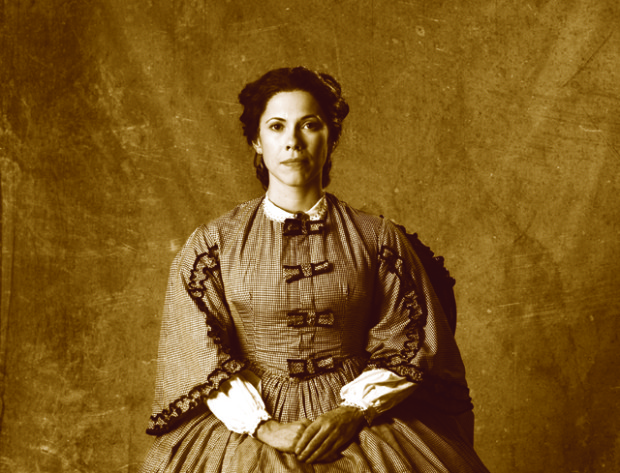‘Rebel’ the true story of Cuban American woman who fought in Civil War

 By Daysi Calavia-Lopez, Voxxi
By Daysi Calavia-Lopez, Voxxi
She was Cuban. She fought in the American Civil War.
She dressed as a man and took to the battlefield. She later became a union spy.
Her name is Loreta Janeta Velazquez and although her description sounds similar to that of a fictional character from a Hollywood blockbuster she’s the focus of Ecuadorian filmmaker Maria Agui Carter’s most recent project, “Rebel”.
The documentary premiering as a special presentation of the Latino Public Broadcasting series VOCES ON PBS explores the secret life of a Cuban immigrant from New Orleans, a soldier and woman whose name is not common in history books or in the average American household.
“I came across her story on the internet,” Agui Carter said. “At first I thought it was fictional and dropped it, but a few years later I came across an article by DeAnne Blanton and was taken aback by the way she wrote about this woman as if she were real, so I decided to go visit her and learn more. I wanted to know ‘what is a Cuban woman doing hiding in the American Civil War?’ ”
DeAnne Blanton, senior military archivist at the National Archives in Washington, D.C, couldn’t have been more thrilled to meet Agui Carter.
“When Maria first contacted me to tell me she was researching Loreta I was so excited. I thought finally,” she said. “Finally someone who didn’t want to dismiss Loreta outright.”
Blanton always found Loreta’s story worth telling and felt it was never viewed under a positive light by historians. Her 600-page memoir, “A Woman in Battle,” which “Rebel” is based on has been the subject of historical criticism since the time it was published in 1876. Historians main gripe about the book is its inconsistencies. Because of apparent embellishments in Loreta’s memoir it was dismissed as a hoax.
However, newspaper clippings and recently discovered documents in the national archives indicate that’s not true.
“She existed. She did many of the things she said she did. We have the documents here at the national archives proving it,” Blanton said.
Proof of Loreta Janeta Velazquez’s accounts
During Agui Carter and Blanton’s research of Loreta Janeta Velazquez’s firsthand account they found her pass, a pass civilians needed to travel from city to city or into enemy territory as well as pay records for Alice Williams (the name Velazquez used when she worked for the U.S. Secret Service), and newspaper articles reporting Velasquez’s arrest. “I just went and looked in the records that exist and there they were, exactly where they should have been for someone who did that service, but if you think about it, the National Archives is huge. There’s billions of pieces of paper and no one took the time to look because people just assumed she was a fraud.” she said.
Skepticism aside and 13 long years of research later Agui Carter is a firm believer that the stories we tell about our past really shape our national consciousness.
“We have not always been deemed worthy of archiving, we have to look for our history in different ways,” she said. “We don’t expect women on the home front or Latinas in the civil war.”
Filmmaker Maria Agui Carter relates to Loreta’s story
Maria Agui Carter like Loreta Janeta Velazquez immigrated to the United States at age seven and has always been intrigued by the concept of citizenship.
She grew up in New York and was raised by a single mother who worked as a seamstress in a factory. Neither of them had legal documents. Later her mother married and Agui Carter was able to obtain permanent residency. She received a scholarship and graduated from Harvard College.
“We choose a story because it expresses something we identify deeply with,” Agui Carter said. “Until Latinos are the authors of our own stories, America won’t really understand us. We will be seen as outsiders in our own land. That’s why, I’m in film.”
Agui Carter will be turning the camera on herself as she works on her next venture, a film about her personal experience being undocumented in the U.S.
This article was first published in Voxxi.
Born in Miami, Daysi has a BA in Mass Communications from Florida International University. Her articles have appeared in The Sun-Sentinel and The South Florida Times. She is the video editor for Hialeah TV. No matter what the medium, Daysi believes in the power of storytelling.
[Photo courtesy PBS]

